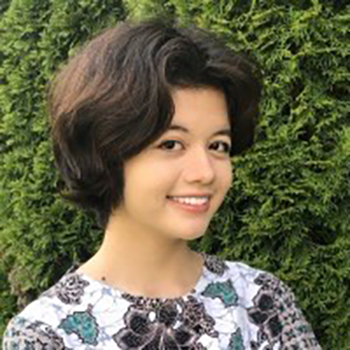Tiara, Neuroscience and Public Health and Labor Studies (minor)

I have always been deeply fascinated by understanding the human condition and using that knowledge to promote social justice. The way neuroscience bridges the gap between something as intangible as the mind and as physical and concrete as the human brain has always intrigued me. At the same time, I have always been invested in promoting justice for those whose minds work differently, in part because I was made acutely aware of how differently my mind worked compared to other people’s minds.
According to the field of educational psychology, I am categorized as “Twice Exceptional”—that is, I’m classified as “Intellectually Gifted” and diagnosed with a neurodiverse condition (ADHD). This made navigating the public-school system especially challenging. In 3rd through 5th grade, I was in pullout classes and accelerated math. In 6th grade, I participated in an accelerated math curriculum at the University of Minnesota. When my family moved, my new district in Washington State would not allow me to enroll in gifted classes, and I found the system was unequipped for my educational needs. Eventually my parents and I decided that I should apply to the Robinson Center for Young Scholars. This allowed me to skip high school and go straight to the University of Washington after a year of intense college-level curriculum. I have deeply mixed feelings about educational tracking, “giftedness,” and acceleration, but for me, early entry was the right option.
“Neurodiversity to me represents a paradigm shift. By thinking about neurodevelopmental conditions as differences to understand, rather than diseases that must be eradicated, neurodiversity allows us to identify and deconstruct what may be exclusive or inefficient and build a world that’s better for everyone. It encourages us to expand our idea of what it means to be “normal” and what our society could look like if we could accommodate diverse ways of thinking and doing.”
- Tiara
Just because a student appears high-achieving doesn’t mean they don’t struggle or need support. What people don’t see is the incredible effort it takes for me to do things they think are effortless. On the outside, I seem to interact with other people the same way anyone does, but that has come from years of observation and making mental flowcharts for how I am supposed to talk. People who might appear high-achieving and “fine” externally can still be dealing with a lot. Acknowledging and heeding their concerns rather than dismissing them can be really important in making folks feel heard and understood.
The biggest moment for me [in college] was presenting on the work of the student group I co-founded and led, Huskies for Neurodiversity, to our funding body. When I presented our progress, I realized we had met or surpassed all our goals. The most touching comment to hear was that neurodivergent members of the funding committee were inspired by our work and valued our contributions to promoting visibility for neurodivergent students on campus.
My education at UW has made me realize just how much is out there, and with such a vast world with so many topics to explore, I feel a sense of wonder and curiosity at all the possibilities. Lofty goals feel within reach, and having the experiences and connections with others who are invested in the same ideas I am, or passionate about the same causes, gives me hope for the future.
I think studying neuroscience can foster greater empathy for individuals whose brains operate differently. Neuroscience helps us understand aspects of the human condition that are often so hard to grasp in a concrete sense. The use of neuroscientific techniques has made a huge contribution to the acknowledgement of mental health differences as a real phenomenon instead of a personality defect.
I have studied to hopefully enter the medical field. However, I would like to explore more about how people live around the world and the various kinds of jobs that would be best suited not only for what I want to do, but what would help me maintain my health and well-being as a neurodivergent person. Whatever I do, I want to continue teaching and mentoring and affirming people as they are.